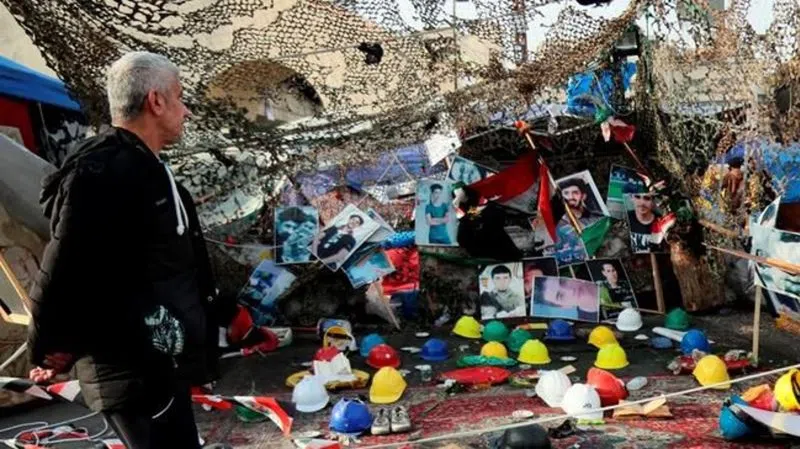
Officials, activists: 2 Iraqi protesters killed in Baghdad
BAGHDAD — Two protesters were killed and over a dozen wounded in central Baghdad on Friday in renewed violence between anti-government demonstrators and Iraqi security forces, activists and officials said. The deaths followed weeks of calm.
Riot police fired tear gas and hurled sound bombs to disperse crowds on the strategic Sinak Bridge after protesters attempted to breach cement barriers previously erected by security forces, causing the casualties, activists and medical and security officials said.
Two protesters were killed and at least 20 wounded, three activists and a security official said. The officials spoke on condition of anonymity in line with regulations.
Friday’s violence breaks a period of calm between protesters and security after tensions soared between Tehran and Washington following a U.S. drone strike that killed a top Iranian general. Both countries showed signs of de-escalation after Iran retaliated by attacking two military Iraqi bases hosting American troops without causing fatalities.
